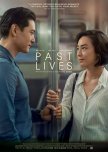
About a great service of love AKA a fateful, karmic relationship
"Past Lives" is a US production. Both the author and the two 'Korean' leads have Korean roots, but they did NOT grow up in Korea, nor do they live there. The story is autobiographically inspired and is dramaturgically presented in authentic dialogues on the one hand and selected, visually impressive sets on the other. It is about the aspect of fate (and or Karma) in encounters as well as pondering platonic love. "Past Lives" is indulging into the emotional world of more or less accountable and sensitive reflection of the protagonists, especially of those two extraordinarily mature, fine young men. You rarely see that. Additionally, as far as camera work was concerned, light and perspectives were chosen with care and thus implemented as supplementary actor, sort of. All this is quite wonderful and has already been widely praised. “Past Lives” is thus a movie well worth seeing.This movie presents South Korea and an attitude towards South Korea through the eyes of a South Korean girl who during the 1990s emigrated with her family at the age of 12. She then grew up in Canada, tried her luck as a playwright in New York, married an American, received the green card as side effect, and is ambitiously seeking recognition and success as a writer today. “Past Loves” thus has its positive emphasis on life in the US. The protagonist´s family had turned their back on South Korea. However, besides everything else, that has been already mentioned all over the place, I would say, that "Past Lives" is actually indirectly, in a rather subtle, reserved, unobtrusive way, (almost overlooked and hidden underneath the shiny, promising dominance of the US,) about positive Korean specific qualities, too... Therefore…
Generally, “Past Lives" juxtaposes those two ´worlds´ rather dichotomously. THERE South Korea, the country of origin that was left behind - far away and rather in the background, in the camouflage colors of the military and surrounded by plenty of soju. HERE the USA - reduced to a highly stylized New York (and artist retreat on Long Island), that is bathing in beautiful light and selected colors. In several respects, the United States is presented as the unrivalled better choice.
However, we experience these worlds through the eyes of the protagonist. In Nora's eyes, South Korea stands for conservative narrow mindedness, constraints, lack of freedom (which to some extend is certainly true). The USA, on the other hand, for her is the symbol for freedom, creative power, partake (should, could, might as well…). Eventually, those world views turn upside down. These are prejudicial concepts, both of which are not generally correct, e.g. each not representing the whole truth.
So, KOREAN normal everyday life is portrayed as conservative, shaped by her parents perspective and Nora's childhood impressions of the 1990s: the young democracy, already economically shaken by the Asian crisis. Her parents were artists and as such one way or another most probably influenced by the shaky turbulences of pro-democracy movement of the 1980s. They wanted a fresh start. Yet, what remains in Nora's memories? Very vague memories of school days, of what was said at home, of the striking images that remain impressively to this day. Bottom line: 'Men have to do their military service.' 'People are conservative and unsophisticated.' 'Men dependently live at their parents´ home until marriage.´ ´You can´t proceed in life.´
On the other hand, NORTH AMERICA is the much-cited world of unimagined possibilities. For Nora specifically, it is about a liberal world for the arts. She´s dreaming about her successful future, while the ambitious daughter may actually be living a much wanted life in lieu of her parents, too, to a certain extent. However, this ambitious dream is symbolically captured as an aesthetically abstract decal of New York and the Montauk artist retreat. For Nora, the USA represent a possibility to fulfil her dream of international prizes as an author. Thus, the USA as the center of her life is uncompromising and practically non-negotiable. That's okay and understandable.
This South Korea in the movie has a strong touch of Nora´s own prejudices. Apparently, she never emotionally processed or reflected her relationship to her country of origin. A deficit, which may also narrow down the perspective of the audience. Therefore, I would like to stand up for positive 'Korean merits', which only shine through subtly. In fact, though, they are formative for the characteristic poetic quality of the story. They come along in the person of Hae Sung. Thanks to him Nora can finally hold the key to her emotional freedom in her hands. (Whatever she may do with it now...) Thanks to Hae Sung (so to speak) she got her story and thus her tremendous success as a writer and director, too.
If you don't identify with Nora´s enthusiasm for the US so much, it might be easier to recognize those ´Korean merits´. Hae Sung actually embodies the opposite of what has settled in Nora's mind about South Korea. He stands for a new spirit among the digitalized young generation - even though he is an engineer. She, however, sees what she wants to see, reducing him to military service, close family ties, his clearly structured career and his reserved answers to her questions about marrying or rather not marrying his girlfriend.
Nora overlooks the fact that in his half-hearted answers about marital responsibility he carefully avoids generalizations so as not to overwhelm her with his feelings for her. She overlooks the fact that Hae Sung is indeed the courageous creator of his own world, possibly facing life even more creatively and openly than she dares herself. He chooses to study abroad in China because he wants to learn the language and because it may suit his career, too. He is ambitiously following his career plans, just like she does. Nevertheless, he is open to life´s challenges and ready to completely turn everything upside down. He is actively dealing with what is going on between the two. He prefers not to go for a logical, reasonable marriage. Instead, he takes what his heart tells him, seriously. He wants to sincerely check it out. This makes him vulnerable, too. Actually it was him, who originally went looking for Nora. With courageous creativity he took the chances life had to offer in his own hands. From a practical point of view, HE thought creatively and acted courageously. Nora on the other hand was the one, who, to a certain extent, simply unwinds her program without looking to the left or right.
Back then, when she left South Korea, she just put her feelings away, came up with a new name, learned the new language and left her best friend (and Korea) behind like an old toy. Since then her feelings for her old homeland only slumber unconsciously in her dreams. In her life, which is highly concentrated on her career as an artist, her past and origins have not been given the place they deserve. Hae Sung has to come first to open the door to that forgotten dungeon of her heart.
Still, we don't know whether Nora was able to take the 'little one' in herself by the healing hand - the 12-year-old Na Young, whom she had left alone in the past. All we know is that Hae Sung gave her a chance to reconcile with her roots and a hidden, almost forgotten part of herself. His great service of love was: not forgetting her, not giving up on her; looking out for her; meeting her, too; recognizing her for who she is; reminding her of something else, that she had almost forgotten; and finally letting her be - in an understanding, loving, respectful, ´Korean´ manner. Even if it hurts.
Actually, being himself, he represented another powerful aspect of South Korea, that Nora had so far not realized as such: A finely nuanced, rather emotionally dominated and yet respectful attitude towards life. This in contrast to a rather dichotomously shaped - black/white, good/bad, yes/no -, rather reasonable approach towards life, as it radiates from her 'North America'-concept.
At the heart of "Past Lives" is the probing of the protagonists' feelings for each other. What are those feelings supposed to be? Platonic maybe? Or more than that? And of course the story lives from the attraction of 'What if?'. This careful scanning of a space of potentiality is processed aesthetically cultivated, and stylishly. Respectfully too. Finally there are tears. ´Past Lives´ it is… However, the striking poetic aspect of this story is only made possible (in my opinion) by this very South Korean Hae Sung, who is not afraid to meet the multilayered complexity of emotional depth, confusing affection and difficult challenges in life, and (!) who is also not afraid to back off in respect to a larger context either. Thus he eventually even provided her on the silver platter of his heart with the so much longed for international artistic success...
PS:
Must be the 'In-yeon' they keep talking about throughout the movie...
--------------------------------------------------------
SIDE NOTE:
In-yeon = a fateful, karmic relationship
--------------------------------------------------------
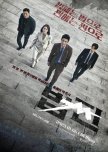
Compelling, complex vendetta, expressive play, impressive spirit & cunning plot development
KDrama Orbit starts into 2023 just as the year 2022 had been – full of productions with their fingers put right into the sore of wounds of society, savouring its imbalance with relish. "Payback: Money and Power", again, is one of those. It offers an exciting, astute, complex and clever story about revenge against those giants, who can hardly ever successfully be confronted by legal means. Money helps… those... who want to have things turn out the way that they prefer… who can afford to have things turn out the way that they prefer... who have a strong vision, too.The underlying premises are pretty sobering, yet well-known territory in KDrama land:
-The system (democracy and the rule of law) serves the money, not the people, because the people who fill the system with life can be bought.
-Power and money are inseparable.
-Hierarchical class thinking is far from overcome. The value of a person's wealth directly determines their value as a human being.
-Huge fortunes and legality rarely go hand in hand.
-The good news for the wealthy: money can buy you justice (and law).
-The bad news for the ordinary: Life is unfair.
-With legal means (alone) justice is not a given.
"Payback: Money and Power" bluntly takes all of these premises and blends them in a vendetta against Goliath revisited. Therefore, David first becomes a Goliath himself. In this case, David's real name is Eun Yong. He has risen from a penniless, simple young man to become the CEO of a private-equity fund who successfully speculates astronomical sums of money. Together with a team, that for him is family, too, he takes on a financial cartel in which politicians and especially the public prosecutor's office are also involved. Thus, it is not played fairly. On the contrary: it is actually life-threatening.
So, at first glance the plot doesn't seem to promise much that's new. Nevertheless, "Payback: Money and Power" offers a dense, strong story, with expressive play and impressive spirit. The presence of the mimes in front of a rough, gloomy background is haunting. To be honest, I paused for a moment - not sure whether I really want to know and see everything or rather drop. Eventually, I couldn't help it, couldn´t let go of it. I WANTED to know and see. The impression, the KDrama left with each episode, was just too powerful... And I'm thoroughly glad about it. A great story. With a considerably cunning plot development. Despite the underlying bitter seriousness an invigorating (for all the refreshing poetic freedom - e.g. not everyone is as talented, tactically adept, self-confident and yet grounded in a good balance of heart, mind and soul as Eun Yong) and encouragingly optimistic perspective.
Oh, actually, here's another premise I forgot to mention at first...
-But what a relief that the law still exists... and also those few, who stick to it, believe in its value and power, and thus keep fighting for it with wits and passion...
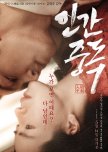
An (erotic) melodrama whose melodramatics were brilliantly captured
"Obsessed" is an erotic movie about a passionate affair in South Korea around 1969. It is a melodrama whose melodramatics were brilliantly captured - with a Song Seung-heon, who absorbs the drama in his particular passionate manner. What is new in that context, is how he is allowed to act almost shamelessly here.However, "Obsessed" is also an exciting KMovie as it touches on a not so well known chapter in recent South Korean history: the time of Vietnam War.
------------------------- SIDE NOTE: --- South Korea and the Vietnam War ---
It is always the USA that come to mind. But South Korea, Australia, New Zealand, Thailand and the Philippines also fought in Vietnam. South Korea was the country most involved after the USA. Between 1964 and 1973, around 48.000 Korean soldiers were each year drafted into this war. They had all volunteered, not least because their monthly wages brought in almost twice as much as a normal annual salary would have at the time. However, the South Korean army has gained a dubious reputation with a few massacres (including among civilians) in this war - a chapter from the time of the military dictatorship that has not been fully processed by now. The KMovie gives at least some space/thinking to this aspect - in connection with the consequences of the post-traumatic disorders, including the protagonist.
-----------------------------------------
"Obsessed" conveys some impressions about those 1960s/70s. The already strictly authoritarian context of South Korean every day life becomes even more so during dictatorship at that time, let alone in military itself. Thus every spark of vitality is nipped in the bud by the stiff corset of an immaculate facade. With the affair, an erotic tension is built up that one is not used to from the KDrama orbit. For the protagonists, however, this tension opens up a forbidden, yet addictive space to breathe, love and feel alive - and this precious moment of feeling alive has more value for the distressed male protagonist than anything else - as he has already seen and brought way too much death into this world...
Provoking. Gloomy. Beautifully done.
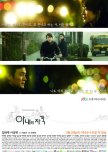
A career of the dismantling of a wife´s self-esteem and the almost impossible attempt of recapture
A highly valuable socio-critical study about being a wife, a mother, a granddaughter in South Korea today (actually 2012). The KDrama offers an in-depth (at times disturbing) insight into everyday Korean reality around the hierarchical concept of family and the upbringing of children. There is also a lot of local color about the simple everyday life of the lower and upper middle classes.The framework is provided by the madness about education, which in South Korea means that mothers in particular are under enormous pressure to perform (long before it really reaches the pupils themselves). The mothers are expected to support their child for the glory and honor of the family in such a way that it later has the best outlook on a professional career. Career in that sense is starting early...
"A Wife's Credentials" puts a critical magnifying glass on exactly this social dynamic. It also puts the magnifying glass on the disadvantage for women who give up (should give up!) their job with marriage/family life. Additionally, the KDrama also spotlights the issue of sexual assault in the workplace, the stigma of a single parent and finally social hierarchy.
It centers on So-rae, a once-creative young graphic designer and children's book illustrator who (one could say rather accidentally) stumbled into marriage and is now forced to prove herself as a housewife and mother in an ungrateful environment. A little bit of sunshine is provided by her son. However, in the end he too might be taken away from her. "A Wife´s Credentials" is basically illustrating the career of the dismantling of a wife´s self-esteem and the desperate, almost impossible attempt of recapture.
More than once you want to shake and shake even more not only So-rae but also many others. Yet, this is all due to family values and the social context in South Korea (...I wasn't aware of its extent the first time I saw the show). The tremendous injustice that So-rae is confronted with from several sides in addition to what she actually allows and gives in to, is rather disturbing and can eventually get on your nerves. For me as a woman, too, (yet being sozialized in Germany) it was sometimes extremely hard to bear.
This social study of a woman´s life (in South Korea) is painful to look at, yet told in a highly authentic manner. Thanks to veteran high-end actress Kim Hee-ae at its best, So-rae's emotional processes are brought to life even more authentically. With the example of her male protagonist facing the same subject - an unhappy marriage and a potential divorce - the dramatically differing social stand of men and women are presented rich in contrast!
The soundtrack stands in fresh contradiction to the sobering subject matter, which repeatedly embeds the events in a cheerful, confident atmosphere and encourages facing the challenges of life optimistically.
The various side plots profoundly round off the picture of contemporary society of that time. (Compared to more recent dramas, society´s expectations in that respect unfortunately doesn´t seem to have changed).
--------- SIDE NOTE --- Divorces ---
... in South Korea are still hardly socially accepted. At least ´adultery´, which was at the time of the KDrama still an illegal issue, that could be punished (in fact even with years in prison) is no criminal act anymore. However, a law is still in force, prohibiting adulterers in South Korea from starting divorce proceedings. Plus, in order for the divorce to be legal, both spouses must agree. And if so, at least significant monetary compensation must be expected. However, this obviously doesn´t help prevent adultery (especially among husbands) to happen. It´s rather a matter of hypocritical morals - a South Korean study in 2015 found that of surveyed men 50,8 percent cheated at least once. It is among men almost considered normal with no consequences for the valued concept ´family´. Whereas among women it was 9,3 percent - and there it seemingly happens more often at a point within the reationship, when the wife might also be prepared to end the ´failed family project´ - but cannot simply do so.
----------------------------------------------------------------------
At last, I deliberately want to mention the relationship between So-rae and Tae-oh, which is told in such a refreshing way that goes beyond the usual clichés. For once, no silly chastity. No romantic exaggeration. Real. Grounded. Not a hero, who would do everything unimaginable for his loved one so that the sun would rise in the west (...yeah, a little bit, though...) ... Instead, an appreciative, loving, grounded, not completely selfless, but patient partner at eye level and at your side, if woman needs him. Not Mr. Perfect, yet a man, who is prepared and willing to grow in relationship (even if it might be bothersome at times).
Finally, the coherently told story convinces with an ending that provides emancipated happiness - noiselessly, softly and with balanced steps.
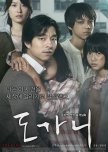
Outstanding KMovie. Daunting. Blunt. Galvanizing. Impressively staged. Yet rather painful to watch
"Silenced" is a 2011 movie production. The KMovie is based on a book and this in turn is based on a true story that happened at Gwangju Inhwa School. For a change, it's not about bullying among students, but about repeated sexual abuse by teachers and school staff against their underage wards. In this case they were also deaf."Silenced" is an outstanding, moving film production - in several respects.
The story is impressively staged.
Horrendous abuse. Repulsive in its unbelievable brutality. Blunt.
There are the children left at the mercy of pitiless adults, left alone in their helplessness - speechless in every respect. What else can they hope for in this world?
There are the adults - the perpetrators and also those who knowingly close their eyes to injustice for their own benefit. (I have no idea what they do with their ears and their conscience, though...)
And there are the two protagonists - neither of them exactly the epitome of promising heroes...
With a top-class Gong Yoo, who personally and actively supported the filming of the story. He read the book during his military service. But it was only later that he found out that these were true events. He met with the author and the idea for the film was born. He embodies the main role of the initially quiet, perhaps somewhat wimpy, indecisive teacher; a widower and a father who is absent due to his job and who relies on his mother's support to look after his sick daughter. Yet, it is precisely this tangible, silently screaming human weakness of his character, his uncertainty in dealing with the unfathomable, his own initial shock of cautious, perhaps naive reserve that contributes to the authentic strength of the KMovie. (If the world were full of determined, courageous heroes, then there would be less such terrible incidents, repeatedly taking place over the years with impunity - like those in that South Korean boarding school for the deaf in Gwangju...or that Odenwaldschule in Germany, or far too many other schools worldwide.) The heroic in our protagonist must first be born and then grow. This is a process. Step by step, stumbling, helpless, hopeful and yet again discouraged, but then unbendingly getting up again - and finally on a path of no return...
The KMovie “Silence” is shocking.
Grim. At times it may be reminiscent of a horror movie like 'The Shining' or something similar. The story is daunting. Its social dimensions are sobering. There are hardly any words for this parallel world. What people are monstrously capable of... and then also: that time and again, in the face of blatant injustice, people let themselves be bought and silenced for their own benefit.
Nevertheless, the message at the end is (I think) quite wonderful: "...it makes me think, that the reason we are fighting so hard is not to change the world, but instead to not let the world change us." Resistance takes on an encouraging new dimension that doesn't have to give in, even in the face of a Goliath. Great!
The KMovie was and is galvanizing.
“Silenced” shook up the masses in 2011 in a spectacular way. Over 4 million horrified cinemagoers saw the movie, which was number 1 on the South Korean cinema charts for three weeks in a row. The book by Gong Ji-young was storming the bestseller lists.
What the regular jurisprudence was previously unable to do was actually subsequently made possible by the pressure of the shocked masses: 1.5 months after the KMovie was first broadcast, the so-called 'Dogani Law' was passed. (Dogani = "Crucible", the title of the book and film). Since then, the new law has suspended the statute of limitations for sexual abuse of people with disabilities and for rape of minors under the age of 13.
Therefore, some of the perpetrators at that school in Gwangju who had previously gotten off with lax sentences were subsequently summoned again and sentenced to long prison terms and/or electronic ankle bracelets.
Lastly, at least THIS school was closed.
Respect!
For taking up the issue.
For not giving up and thus using other means (a movie on the big screen).
For the sensitive handling of a tough topic.
For the often extremely unpleasant, painful, however nevertheless coherent film adaptation of a fantastic script.
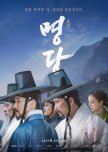
Everything stands or falls with the choice of an auspicious place. Insights into Korean geomanticsm
"FengShui" is a historical KMovie that addresses the political takeover by Heungseon Daewongun and his son, King Gojong. Even more, it deals with the Korean version of geomancy - Pungsu-jiri-seol = theory about the relation between wind, water and earth - which has accompanied the country across all dynasties since at least the late 9th century. The traditional theoretical concepts, studies and observations are about which constellations in the landscape bring luck or misfortune to people. In South (and North) Korea there is hardly any building, tomb, temple, or city that was not built from the point of view of Pungsu. To this day, Pungsu is still quite popular.Against this background, one could understand the movie "FengShui" as a nice, sometimes exciting story that comes up with a pointedly, rather apolitical, and for some even esoteric explanation about the ending of the Joseon Dynasty: At last, it was the (wrongly?) chosen location of the tomb that decided the end of the empire...
In any case, the story dramatically illustrates the importance of Pungsu to the people of (Silla, Goryeo, and) Joseon. And by the way, it gives an insight into the political situation during the last decades of Joseon. Without reference to this, however, one may be a bit surprised about the scramble for graveyards and also the struggle for power at the palace would be an interchangeable one among the many stories available on screen... No matter which glasses you choose, the cast in any case guarantees top-class performance.
Eventually, if you are interested in Korean society and history, the KMovie "FengShui" opens up an understanding of the great importance regarding the harmony (or disharmony) of human life with natural events (such as weather and seasons) as well as in relation to geographic features of the landscape (such as mountains and lakes and landscape) - as they are having a direct impact on human health as well as the fortune or misfortune of personal, family or even national fate. Everything stands or falls with the choice of an auspicious place (Myeong-dang) for one's own house, grave, market square, administrative headquarter, temple, fortification, palace, etc.
The teaching goes back to the Buddhist monk Doseon (826-898). He was a Daoist master and Zen Buddhist student who adapted the Chinese principles of feng shui to the Korean landscape and cultural environment. What is special about it is the concept "grow with nature", which in this respect focuses on an analysis of the spiritual and matter-related energies of mountains and landscapes as well as their effects on human life. (Interior furniture etc. plays a minor role in Korean pungsu.)
The KMovie "FengShui" puts a Pungsu master at the center of the story. Due to the more or less favorable choice of location, he can predict and influence how the fortunes of the people affected will develop. In this case, by using this knowledge to choose the most favorable burial site, he becomes a veritable kingmaker.
By the way:
All 42 royal tombs of the Joseon Dynasty over a period of more than 500 years are largely undamaged to this day. This is worldwide unique. All are arranged in the landscape according to the teachings of Pungsu - at most close enough to the capital for the royal family to visit the tomb within one day. (The concrete design of the complex was based on Confucian specifications.)
By the way:
The historical starting point of the story is the fact that Heungseon Daewongun, a central political figure of the last Joseon decades, moved his father's tomb on the advice of a Pungsu master. The new setting somehow promised that 2 kings would come out of his family. That was actually the case. But after that, the Joseon Dynasty came to an end.
------------------------- SIDE NOTE: --- Myeong-dang and Korean Pungsu ---
Pungsu officially goes back to the monk Doseon. But there are also sources that indicate that there was already a spiritual tradition with human-nature harmony on the peninsula, the aim of which was to efficiently balance landscape and topography, natural forces and sanshin (mountain spirits) in order to determine the fate of the purposefully influencing people.
Doseon's works have not survived. But his yin-yang geomancy was handed down in the works of later Confucian scholars. In the 12th century book "Haedong-Pirok" about the secret history of the country Doseon's theories were mentioned and even expanded. 5 centuries later, Yi Jung-hwan (1690-1752) in "Tangni-chi" analyzed the topography and landscape of the entire peninsula according to these geomantic points of view.
Central to this is the concept of Gi (forces of matter) as opposed to Li (forces of Heaven and Spirit). Mountains, and in particular the central mountain range that stretches like a spine across the peninsula, are the source of Gi. The energy flows, so to speak, from the mountains into everything that the landscape produces, into the water and into the air - all that nourishes the humman being. Gi thus becomes concrete and figuratively the source for a strong, happy people.
Another central concept is "Hyeol": a place of perfectly balanced forces of heaven (cheon-gi) and earth (ji-gi) from which people benefit the most. Such Hyeol with high, positive energy potential include, for example, Jiri-san's Cheonghak-dong valley in the south of Samshin-bong peak or the location of Buseok-sa temple on Sobaek-san. "Hyeol" actually means an ´opening´. Like the 9 openings of the human body, there are also openings in the landscape through which energies can enter and escape. If you like, Hyeol could be considered acupuncture points in the mountain landscape. Knowledge and control of Hyeol thus is highly related to power. A more ancient term for Hyeol comes from the shamanistic tradition: 'Myeong-dang', the (spiritually) lightful or auspicious place. The idea behind it: Bedding the ancestors at the auspicious place can bring prosperity, power and good fortune to future generations. Bedding the kings at auspicious places accordingly brings prosperity, power and good fortune to the nation.
...The KMovie is originally named "Myeong-dang"...
---------------------------------------------------------------------
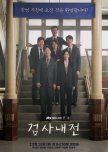
Authentic! The people, the stories, the setting. Affectionate, humorous & true to life characters
"Diary of a Prosecutor" is an extremely delightful, unconventional and, despite all the sometimes snappy, sometimes cheerful, sometimes pitch black, sometimes heartful humor, it also offers a quite serious, profound examination of jurisdiction and practically handling the law. This embedded in the simple everyday work-life of ordinary people, told from the perspective of a provincial prosecutor. The script is based on the essay "Civil War Prosecutor", written by a real prosecutor and inspired by his personal experiences.So it is primarily about the everyday life on the office floors and behind the office doors of the public prosecutor's office. First and foremost, this is about profane workdays that often last until late, including dinner and drinks with colleagues. However, this is also about a noble task, the juggling with legal regulations, the ideals of a just society and the diplomatic basics in dealing with superiors in the strict hierarchy from the bottom to the top. And last but not least, this is a potpourri of different individual stories of quite ordinary people who face the challenges of their inconspicuous lives every day anew, and eventually grow from them - as it is in life...
In other words, you get: a variety of people you grow fond of as you get to know them better; a job-portrait that is subject to the highest expectations, but whose credibility in the country is still not easy. And a (fictional) outskirts - a town at the seaside, famous for its oyster harvest. The filming took place in Tonyeong-si in the very south of the country, where practically the entire crew (around 150 people, including cast) stayed during the five-month shooting period... Provincial life is thus breathing from every pore of the KDrama - everything is a bit more relaxed, closer to nature. Seoul is far away…
Conclusion: Authentic! The people, the stories, the setting. The dramaturgical 'trick': the greater narrative of the omniscient narrator. The humor that comes along with it. Sometimes ironic, sometimes satirical, sometimes bone dry. Bottom line: funny and complex at the same time. Affectionate, humorous and true to life personality portraits. In script and play. The cases and the ethical questions involved go deep at times. And yet it is people who deal with it. Colleagues. Eventually in competition at times. Imperfect people, with weaknesses, even if they wear robes. Yet, people who can excel themselves at times, too. Other than that, the days, weeks, months and years go by, case after case, team dinner after team dinner...
As far as Korean life and culture is concerned, with this KDrama you can get pretty close to the people and their everyday world in many ways. Because of this and a wonderful overall concept, whose good spirit works on all scales, I consider “Diary of a Prosecutor” highly valuable.
Maybe it's a bit unusual at first. Don't let it irritate you. Keep going. I´d say it is worth it...
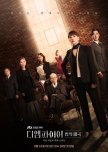
Dynamite is lurking everywhere that could bring the Empire down... but who dares to set it on fire?
First of all: should you watch "The Empire"? In any case. Yes! But: The KDrama isn't funny or soul food at any point... Rather, it provokes by intelligently and multi-layeredly confronting the ugly sides of the glamorous world as well as the almost hopeless rebellion against it."The Empire" stylizes the world of that top 1-10 percent, that outrageously wealthy and influential elite of society who can afford a lifestyle that the rest of society dreams of. At the same time, this elite presents itself as mendacious, bigoted, moral scum. Dynamite is lurking everywhere and could explode at any moment. The KDrama paints a dull, tired, bored, vile, quarreling picture of the rich - not a radiantly beautiful one brimming with vitality. Wealth is displayed in a feudal manner, but it seems a bit pietistic, even from the outside it's rather cold, empty, stale and sad. The color saturation has been reduced accordingly. Some clichés are tickled. Privileged decadence is predominant. Elitist arrogance rules the luxurious, isolated orbit of a calculating, selfish family dynasty. Everything here is expensive, bare, distant, decadent, and nothing is welcoming, warm, beautiful, or friendly. With all that wealth and success, no one is free or happy. ´Trust´ is a foreign word in this family. This makes the KDrama hard to bear in places.
The conservative elite in "The Empire" feigns progressiveness by throwing snippets of English into their conversations. However, this seems artificial (dramaturgically quite effective) and (yet) not very convincing, rather quite strange, because their arrogant fantasies of exclusivity are nothing more than mendacious, feudally inspired traditions, old energy full of cobwebs. When the young, life-disappointed but highly talented student brazenly appears in front of the self-proclaimed aristocrats on her vendetta, it is downright unheard of. But basically it is exactly that and much more of it, what it takes to push the dusty elitist behavior to its limits and ultimately really abolish it. There is no awe in this young woman. It may be that she has the courage of the desperate. Never mind After all! The modern system is already stumbling through her presumptuous impertinence. Interesting that this brave young woman is actually introduced as the bad guy - because we as viewers see the story (initially) through the indignant eyes of the self-ennobled nouveau riche - those who want to represent a class of their own and who are used to directing fortunes behind closed doors according to their interests. To a certain extent, the dramaturgy identifies 'us' with those who govern the "Empire". 'We' are identified with order being maintained and respected. And yet it is difficult for 'us' to side with them. This elitist world presents itself as too lost, too sick, too decadent. ... This collision of two worlds is highly explosive and wonderfully depicts the inner turmoil and contradictions within society.
In between, the journalist seems a bit helpless as a plaything for those who provide her with information for her interests. Despite all the bite she has, she is first on the hunt for her own professional success. The 'thing', what needs to be researched and uncovered, becomes a means to a personal end. Journalism, with its democratic mission, is thus also floating on the edge of decadence and gives little hope. (Yet, hope there is...)
And then there is the protagonist Han Hye-ryul: herself a child of that problematic, ambivalent elite, third generation of the empire full of influential lawyers founded by her grandfather. At the same time bearer of hope for a modern democratic society. She takes her responsibility seriously and uses the opportunities that her origins gave her in the cradle constructively in the service of the community - she does NOT bend the law according to her personal discretion, but her truly innovative credo is: she sticks to it for ALL binding law. She tries to follow her professional path with true integrity. Such genuine integrity gives hope to the masses. On the other hand, they frighten the elite, because this robs them of the foundation of their shadow power.
However, the torchbearer of legal integrity is, beyond her professional ethics, also a person who grew up in a world full of privileges. As a child of the elite, she not only automatically inherits money, fame and influence, but also old guilt, and when in doubt she is pilloried. As a woman, she has feelings like everyone else. As a wife, or rather a betrayed wife, too. As a daughter. And as a mother too. She is therefore challenged on several fronts at the same time.
"The Empire" tells the story of a woman who, out of deep conviction and belief in a legal system, wants to undermine the autocratic, arrogant elite coalition. However, she is the child of a family that is involved in such things whether she wants to or not. And yet it is precisely this family tradition that makes her the full-blooded prosecutor that she is. By tradition, she wants to do her work excellently and in an exemplary manner. And for her personally, that means cleaning up the mess of backroom deals and exclusive privileges. Finally someone who believes the rule of law is above ALL? And not only that: the protagonist is one with an ego that (luckily in this case?) is strong enough to actually take on the powerful enemies. So is there perhaps still hope for a better, fairer world? "The Empire" works intelligently on this question. There is no easy answer to that. The crushing moral swamp to traverse is overwhelming...
... And then there is the fourth generation in the family clan... the son of Han Hye-ryul. He actually ticks quite differently ... for his part, he is the bearer of hope for a new dimension. He wants to swim his way out of the swamp of tradition, and yet he is torn between his feelings for his parents and grandparents and his own needs and desires. He doesn't dare, and yet...
------------------ Side note: --- Inflation of KDrama productions, in which the rich and powerful take center stage in the context of law and order---
The corrupt networks, which want to reach the top circles and the blue house, have become an almost inflationary context for KDramas and movies. A trend that has already been observed in recent years. But 2022 will surpass everything that has been produced so far. "The Empire" is one of many 2022 productions that settle accounts with the discrepancy between free democracy, responsible citizens and equal rights for all on the one hand and class society, strict traditions, hierarchies and autocracy on the other. "The Empire" unashamedly and unequivocally, without any ribbons or icing on the cake, unveils how difficult and long the road still is - to a society in which citizens are actually all treated equally before the law. There is obviously still one instance of power that in 2022 in South Korea is firmly convinced that it is above the law...
Why is the profusion of KDrama productions, in which the rich and powerful take center stage in connection with law and order, so inflated at the moment? So that it maybe/hopefully slowly really sinks into mass consciousness and from there it gets to each individual that this must/want/can come to an end! So sledgehammer: monarchical Joseon is history! Aristocracy and class society are history! Dictatorship is history. Let's go South Korea! Stand tall, walk tall! Don't be blinded. Don't be tempted to join in with this old class thinking and to feel a little more valuable if you have someone you can trample on...
No more reverence and respect. No more feudal lords and serfs. Actually, this is presented every week in KDrama, in the cinema and in the news: that the venerable elite is actually morally rather underground and such a life is neither honorable nor desirable. But as long as the viewer's gaze continues to be dazzled by arrogant behavior and luxury items and prefers to look past the lazy core, there will (have to) be endless KDrama variations with sometimes bigger or sometimes smaller sledgehammers. But that's not surprising either, because the centuries, even millennia-old, tradition teaches something completely different... it has been class-thinking all along...
Nonetheless. South Korea counts the year 2022. It is official: We (even in KDrama Land) ALL have a value and worth regardless of origin, past or future - not just a few percent wearing particularly expensive clothes. Wealth or poverty or anything in between and beyond is independent of a person's worth before the law. If we, who apply the law, still act according to ´other´ laws, allow ourselves to be seduced and bought and used, secretly hoping to be able to take such a quick shortcut further up, then it is our own fault. No one has the right to beat us, use and exploit us and throw us away after use like garbage! No one.
----------------------------------------
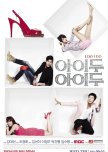
Within the aura of a love story some socially critical topics on successful woman, work & family
"I Do I Do" tends to be humorous, offers a nevertheless emotional love story and at the same time the backdrop for the critical processing of a merciless everyday professional and living environment to which women in South Korea are exposed. As also, for example, "Romance is a Bonus Book", "Scent of a Woman", "Revolutionary Love" or "Angry Mom" the KDrama uses the comedic touch to lift the emphasis of the topic into a lighter tone that is easier to digest. Cheerful and serious aspects are well balanced, also thanks to a great cast.
Within the aura of a love story "I Do I Do" comes along with some socially dominant topics around woman, work and family that want to critically be processed. "I Do I Do" precedes "Now, We are Breaking Up" by nine years. Not much has changed in the status of the professional life of a successful woman (in the fashion scene). The scenario reminds here and there: the experienced, successful and talented designer (here elegant pumps) who has chosen career over relationship/marriage/family; the parents who want their daughter to finally get married properly; a younger man who, after a one-night stand, throws the orderly life of the confident businesswoman upside down. In the case of "I Do I Do", the protagonist ends up in a one-night stand, which is rather untypical for her (and him) due to a chain of special circumstances. The hook for further drama is her completely unexpected pregnancy. ... and 37-year-old Hwang Ji-ahn, still being single, having just been medically diagnosed with a premature menopause...
------------------------------- SIDE NOTE: --- Woman, Work and Family as far as South Korean society is concerned ---
- A woman (in South Korea) can perhaps be successful, but the price for this is her woman-ness (as in many places on earth...). She proves herself to be a better man and simply has no room for relationships where she could live out her soft, tender, feminine side. Showing her weakness at work whatsoever would jeopardize her position. Competitors are already waiting for a devastating neckbutt.
- A woman can be excellent and even unique in her work. From a marketing point of view, however, it is more promising (because it is more binding for business partners) if a man bears the official, managerial responsibility for business sucess... because who knows when the woman will leave the professional world behind and take up her role as wife and mother... The dramaturgical dynamics in this regard are astonishingly differentiated in "I Do I Do". There is even room for the aspect of how women envy each others decisions for either way (instead of solidarily supporting each other - here and there).
- A woman should get married. She can mercifully let off steam for a while in her professional life, since society has already become about 10 years more tolerant in 2012 than in the decades/centuries/millennia before. But the age of 37 is (biologically speaking) a magical limit... because now it's high time. (The KDrama actually offers an exceptional man as a role model who thinks progressively here...)
- Dating, a woman automatically becomes the one who needs/wants to be protected and the one who in turn provides the man with allround care. What a mess, if roles lose their clear assignments. Here, too, the KDrama offers, among other things, another (different) exceptional male role model - one who (although instinctively a protector, too, but nevertheless) is ready to develop in a different way.
- And then equally valid for men and women: relationship is not a private matter. At least the parents are the first to have a say.
-Also: The greatest happiness in life should be a permanent position. Everything else is extra...
---------------------------------------------------
"I Do I Do" defies these societal norms, which in South Korea seem to be chiselled in stone. This is no piece of cake. Interestingly, the KDrama offers only one answer to the question "What are the arguments in favor of deciding to have a child or a family as a professionally ambitious woman?" - this in the face of an almost endless list of reasons that argue against it... This single commitment to a "yes" (towards children and family) is located beyond rationality. This "yes" has nothing to do with virtue and values. This one and only "yes" argument is completely personal. (My respect for taking such a position - one that actually stands outside of society´s right to have a say in this!)
After all, "I Do I Do" eventually shows another variation in the Cinderella spirit of fairy tale love stories ... But. I consider the way as the goal! And the path described in this KDrama (the circumstances and processes of the main protagonist) makes it definitely worth seeing. In addition, Kim Sun-ah finds a good balance between a competent, unapproachable boss and an approachable, not so competent 'woman' with her heart in the right place. Lee Jang-woo also convinces me here in his role as the much younger, impulsive, unconventional Park Tae-kang.
By the way: Since it is about the world of fashion designers and pumps in particular, it would be worth mentioning that the viewers get to see a lot in this regard. Not only in Ji-ahn's well-stocked private shoe room, but also beyond that - 500 pairs of pumps were brought up for the series that were supposedly worth almost 9,000 euros. Also, the protagonist Ji-ahn's individual fashionable style (which goes back mainly to Kim Sun-ah's specific, personal suggestions) became a trendsetter at the time.

I was immediately enthusiastic. It is exciting. Intelligent. Complex. Stylish. Cinematic. Touching.
In "Secret Boutique", the boutique itself is actually not the main focus, but rather its boss. With what her boutique secretly offer she has made herself irreplaceable for the established upper circles of society .- An eye-catcher: Kim Sun-a as Jenny Jang in always exquisite, stylish fashion and with sunglasses that are extravagant in every lighting condition. She acts mostly calm, controlled, superior, with a poker face and in every situation a suitable solution to the problem.
- A joy: Go Min-si as an intelligent Baduk (Go) player and equal strategist who suddenly stumbles into Jenny Jang's team.
- A ray of hope: The fact that this KDrama lives on the many powerful female leads. Three Jaebeol ladies (!) included. The 'men' here tend to be tame shepherd dogs in the service of 'their' ladies...
I was immediately enthusiastic about "Secret Boutique". The KDrama is exciting. Intelligent. Complex. Stylish in the high-end segment. Often almost cinematic in light, colors, camera and set design. And despite all the sublime arrogance, sophistication and need for (self)control, it is also touching. Human traits are presented not only abysmal. A warming grounding in cordiality comes along with the characters around the Go player Lee Hyeon-ji.
Calling the story of "Secret Boutique" a romance wouldn't be appropriate. Feelings still play an important role - here and there and over there, too. Deep feelings no less. Nothing is shallow here. But primarily I would describe the KDrama as the exciting story of a revenge campaign. A story about the (emotional) price of such a vendetta. In addition, an intriguing story about the unfair, corrupt and criminal machinations of the greedy rich, who unscrupulously go over dead bodies, too. A compassionate story that offers insight into the very particular structure of the Jaebeol empires, which channel their power within the family (at the expense of trust, warmth and closeness). A touching story about love and loyalty. Also about how roles, norms and social structures as well as an ambitious ego hurt your own heart. In addition, the KDrama came up with a profound punchline that takes the Jaebeol worldview to the point of absurdity: the Jaebeol daughters, who are so convinced of their elitist, inherited noblesse and who consider themselves so much more valuable due to their lineage, actually do not have any Jaebeol-blood at all ... "Secret Boutique" portrays all of its drama characters in a complex, multi-faceted and tangibly human way.
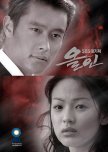
The actors put their heart&soul into it. Soundtrack + camera provide a unique ambience. A Classic.
"All In" is a timeless classic from the early days of KWave. Via main plot and various sidelines involved, you dive into the subculture and parallel world of back room and casino gamblers. In the course of the story, the glitter and glamor of the casino world increasingly take their place, all the way to Las Vegas.Besides the gaming milieu, the series provides insights into the life of simple, poor young people in the late 1990s, which were shaken by the Asian crisis, and offers interesting local color. The well-established KDrama leitmotif 'Orphanage' also has its place here again. Soundtrack and camera capture the action in an atmospheric and impressive manner.
The actors put their heart and soul into it. In the case of "All In" the milieu-specific ambience was supposed to appear as authentic as possible. Therefore, in advance of shooting Lee Byung-hun and Son Hye-gyo (as adults of the main protagonists) went through an intensive training program, including in a casino in Las Vegas: Lee Byung-hun concentrated on virtuosity Card shuffling techniques and the eye dramaturgy of professional players at the gaming table (he won the Grand Prize at the Baeksan Arts Awards that year, as did the drama itself). Song Hye-gyo, on the other hand, was trained as a croupier and not only convinces when she sorts the chips at a breakneck speed.
The opening scene with a helicopter over the Grand Canyon alone is reminiscent of the beginning of a blockbuster à la Tom Cruise or something similar. "All In" isn't just romance, it's also packed with plenty of action, including brawls and gunfights. It's also about friendship among men. As a milieu study of the gamer's world, it's ultimately about gangsters and mafia, too. (Perhaps it is no coincidence that "the godfather" has a guest appearance in the story: it is shown as a movie in the cinema that shaped the youth of the protagonists.) But of course it's also about great love - in the progress of the 24 episodes facing one obstacle after another - it´s makjang after all...
At the time (2003), this KDrama triggered a veritable All-In-Syndrome in South Korea. The filming locations on Jeju Island became a hotspot for fan tourism. The ratings on public television back then are legendary (at around 47 percent).
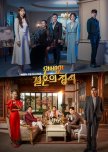
Another Cinderella, all-out, taking her sudden chance for revenge
"Perfect Marriage Revenge" is based on a webtoon and tells the story of a second chance in life, set in the top percentile of society. Another Cinderella story. And as is the case with fairy tales, you can hear them over and over again...This version is particularly enjoyable, being peppered with gratifying moments of retribution. Cinderella wants to get one over on the mean stepmother and her nasty daughter! She doesn't want to be nice and well behaved anymore. Splendid! Of course the others obviously attempt to push back on her new self. This ultimately leads to a lively exchange of blows between two of the country's rich business families.
"Perfect Marriage Revenge" delivers intrigue and makjang, cleverly mixed with emotional complications and well-placed retaliation, which is, however, repeatedly and tirelessly parried. It´s like ping-pong - reckoning here, malice there, self-respect here, nefariousness there. What a delight, if you´re in the mood for just that.
A campaign of revenge with an open visor. With an explicit protagonist who allows herself to act impulsively, intuitively and cleverly at the same time. In her authenticity, she is able to win the hearts of allies as she is fighting her battle not out of greed, but out of self-love for her self-respect.
As I said, with plenty of gratifying moments...
And as a fairy tale it surely delivers...
No more, no less.
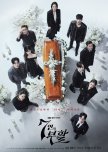
Where it is particularly dark, even a tiny little bit of light appears immensely bright...
I ended my review about the first seasons with the conclusion: "I only recommend "The Escape of the Seven" if the mood is right - one that demands unfathomable beastliness down to the blood. If we get involved in this KDrama, then we will uncompromisingly be catapulted into a world in which a search for the good guys could very well be in vain..."And obviously, things can always get even worse. At the same time, a wink of a conscience is actually making itself known here and there… very quietly, though. Regret and shame become concepts that are though stumbling trying to make themselves be heard. It's evidently not that easy, but maybe, who knows, it might not be impossible…
Still, the Seven can't easily get out of their skin. It´s way too serious what they had done and must be held accountable for. Even if they all go through their own processes and would perhaps like to choose a new path in some way (fortunately, people have the potential for healing and transformation), they can neither run away nor undo what has happened. In addition, they have made a pact with the devil... No matter which devil you get involved with, it rarely goes well...
The second season cleverly manages to build on the first one with fresh dynamics, while still giving the emotional rollercoaster ride a new direction. Sophisticated dramaturgical twists included. It's amazing to notice ourselves suddenly sympathizing with one or the other of the loathsome Seven...
In addition, the KDrama is vividly displaying the frighteningly diabolical (not too distant) future scenarios of our increasingly digitally depending information society, that in the worst case scenario, could become completely helpless in its interconnectedness...
Overall, I think “Escape of the Seven” is even winning with its second season. It offers a special KDrama experience that has it all - for all those who don't shy away from the abysm of the human species. And as is well known, where it is particularly dark, even a tiny little bit of light appears immensely bright...
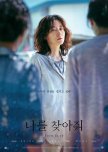
Re. missing children: highly topical, soundly researched, superbly directed and masterfully acted
"Bring Me Home" is a KMovie full of raw reality and emotional impact that disturbingly brings you closer to present day human abyss.Perhaps it would be appropriate to describe this KMovie as a fine study in the nexus between humanity and inhumanity, with the scales being tipped by human compassion. Life becomes barren, cruel, brutal and hopeless when this compassion no longer finds a place among people. But it makes a difference whether a soul has already left the human body and only a cold shell remains, which already lacks any human compassion. Or whether a soul is deeply injured and has only withdrawn far from a dazed body, but at the decisive moment, when human compassion seizes this body and reaches the soul, unexpected energies are mobilized and thus in a kind of holy anger fighting their way out of the pull of gloomy abysses. ...It is compassion that makes a difference in human dignity.
In any case, it is appropriate to describe this KMovie as a highly topical, soundly researched, superbly directed and masterfully acted study about the subject of missing children, or child abduction and child abuse in South Korea.
Howsoever I describe it, the bottom line is the same: "Bring me Back" is a thriller about (in)human abysses. The KMovie unfolds its haunting power through an almost brutal, unimpressed realism, holding up a merciless mirror to a society that seems indifferent to the disappearance of children. "Bring me Back" is a family drama. But it is also rigorous social criticism that explains the particular drama of one (of an alarmingly large number) of South Korean families as a disturbing general social disaster.
Yoo Jae-myung surpasses himself here as dishonest, repellent policeman without shame or sense of duty. Also fantastic: Lee Young-ae. She has already proven herself as an avenging angel in the KMovie "Sympathy for Lady Vengeance". At that time it was about vigilantism as a concept based on principle and planned for a long time. Here it's more of a reflex in the heat of the moment.
Heavy. Gloomy. Still recommendable.
P.S.
Actually, in 2020 (the movie is from 2019) there was a nationwide campaign in South Korea. At that time, 661 children had been missing for more than a year, 638 of them for more than five years. So that they are not forgotten, their faces have now been printed on a wide parcel tape, which is used by the South Korean Post and larger shipping services and can also be used privately. The faces were digitally edited and adjusted to look as they could possibly look today. The central information about their case was also printed on it. (However, I do not know whether this has contributed to the clarification of individual cases yet.)
---------------------------------- SIDE NOTE: --- Missing children in South Korea ---
Human trafficking is not a specifically South Korean issue. However, the continent of Asia is the undisputed leader with 7 countries among the 11 countries with the most victims worldwide. One might not expect South Korea to be at the forefront, but human trafficking is an alarmingly profitable business here, and the trend is expanding - regardless of whether it involves women and children who are exported or imported from abroad, or as Transit country for human traffickers from China or Russia. This is largely beneath the public radar. Public officials are often involved or bribed. In addition, most of the victims here are under the age of 16. This means that they are initially treated 'only' as runaways - this was the case in 80 percent of the solved cases. Thus, the police and authorities are not primarily in charge, but the parents. If the children are among the remaining 20 percent - the kidnapped or abandoned - then unfortunately they are unlucky that they are not searched for with the necessary vigor. At the same time, these minors are among the weakest and most defenseless members of society. They have neither voice, nor life experience, nor strength to really oppose the perpetrators. This makes them easy prey for a lucrative business.
In South Korea, over 99 percent of missing children are found within the first two days. That sounds like a lot. However, for the 1 percent of families who do not find their child during this time span, a nightmare begins that has already driven many parents to even commit suicide. It has been proven that the pain, the struggle with guilt and hope, does not stop in the years and decades that follow.
A figure from 2016: of around 38,000 missing persons reports, half were minors who turned up again within the famous 48 hours. 285 of these missing persons cases could not be cleared up. Among long-term missing minors (according to a 2014 case study), 65 percent were later found dead, and 46 percent of resolved child kidnapping cases revealed they were victims of physical sexual violence.
The statute of limitations marks another problem. As a result, parents often devote their lives to searching on their own, far beyond their means, since no one else will. They however can´t help but keep searching and hoping. They are more likely to lose their job, their social life, their health, or their own life. A 2006 study found that 40 percent of parents who missed their child for years or decades lost their job and spent an average total of around $500,000 in the search. (By now, that sum is likely to be a lot higher.) This includes the money that had to be paid to the number of false informants, or the travel expenses to travel to a potential location where a tip sent the parents. More than once, someone played a prank. Such cases are well documented. But there are also (fortunately) case histories of donors and supporters.
In South Korea, the legal activities relating to missing minors have been tightened again and again in recent years. But the results are still not what one might wish for. A government study from 2021 identifies acute further needs in all areas: from prevention to investigation and prosecution to officials training. Between 2015 and 2020, South Korean women and children were trafficked in increasing numbers. There are always accomplices among public officials, in particular the cooperation between human traffickers and police officers is criticized, which robs the victims of any last hope of help. By the way, in this context, fishing industry on the coasts is also expressly mentioned as a crime scene. Numerous cases of human trafficking and exploitation of workers whose working and living conditions are sometimes disastrous are documented.
------------------------------------------------------------------------------------------

More than a classical romance this is about the elite education hype, Gangnam mothers & scandals
"Crash Course in Romance" ... well.Starting with the title, makes me jump right into my criticism. Don´t get me wrong. It doesn't concern the KDrama itself. On the contrary! Yet, this international title business... again I don't know why... (well, I'll probably never understand it...) Why does the international title have to suggest a completely different story? Why does (in this case) Netflix for the international audience want to present something completely different than the tvN (co-)production? Why can't the story announce its story for what it is in the first place? In this case: A KDrama about the one shot scandal involving Gangnam's one shot math teacher. A story about Gangnam rivalries between students, between mothers, between teachers. A story about Gangnam scandals that can easily destroy lives... There is also a love story (or two) on the side, but if you tune in specifically for the romance, you have to see how you´ll deal with what is actually offered. (I would guess that might be a bit disappointing.)
Surely, a romance is brewing, but in fact it's the characters, the story and the context around it that create a substantial with plenty of life of its own – apart from the amorous relationship dynamics. There is something like a criminal case, too. It get´s more and more dramatic. Gripping, even. Overall, as a dramaturgical leitmotif, with a socially critical wink it nonchalantly pokes fun at the recent education hype. At the same time condemns, too. So, in fact, this is something completely different than the title suggests.
I last saw, experienced and appreciated actress Jeon Do-yeon almost 5 years ago in the KMovie "A Man and a Woman". She is not an international superstar, but a nationally respected and recognized actress in film and television. Besides her mostly profound and meaningful play, here she also shows a clownesque, quirky, yet adorable side. She is actually 50 by now. However, here she plays a woman in her 30s. Imagine that. Here (as well as most recently in 2022 in the KDrama "Twenty Five Twenty One", where the main actress, as a 31-year-old, slips into the role of a senior high school student,) it is working. In fact, this gives the characters more lifelike substance, apart from just being 'young and pretty'. At least that's my opinion. Some may be more critical about this casting-philosophy. However, in South Korea it probably bothers less. The number of viewers has exploded over the course of the 16 episodes: from almost 1 million to more than 4 million.
The competitive advantage here, that generally carries this KDrama and sets it apart from the Rom+/-Com of many a style, is substance and grounding that comes with life – a life which is hard enough, for the protagonist at least. She may run light-footedly down the streets and take life's challenges in a sporty manner, but she has also lost some feathers along the way and made severe sacrifices. She´s past her youth by now. But she stands in the middle of a sound and solid life.
The male protagonist, too, has already experienced a lot in his vita, including some unpleasant encounters with life – despite everything he seems to be living in the fast lane at the moment. Among other things, with his stress-related eating disorder, he brings in a topic of the time that is comparatively rarely addressed in series - if only marginally, and certainly not among men. Here the eating disorder is even the hook for the encounter between the two protagonists...
Nevertheless, "Crash Course in Romance" has a upbeat side to it. ...It´s the clown's job to bring some jokes and fun into bitter seriousness – some say that you should be able to laugh about your own life, otherwise you are probably not taking it seriously enough... Others say, you should be more serious about bringing wit and humor to your life… Whichever you prefer, this KDrama here and there contributes to that, while the background against which the plot unfolds is actually peppered with serious jabs at the normal madness of South Korean everyday life in Seoul, south of the river - in Gangnam: The educational stress and pressure to perform among the students, among their mothers, among teaching staff, as well as in tutoring academies. It´s serious stuff. There is stalking vs. MeToo, social media terror, escape tendencies up to suicide, you name it. Bitter seriousness here becomes the hook for plenty of drama. And these dramaturgical stumbling blocks (or rather metal balls in this case) keep getting in the way of two hearts that want to beat faster. Nothing compares to a scandal in Gangnam. That keeps the characters within the story on their toes, and the KDrama audience superbly entertained.
Re.: Romance... yes, there is.
The two of protagonists sort of stumbled into it. That wasn't on the agenda for either of them. Besides they aren't the youngest any more... (Don't worry: for the younger generation among the viewers, the KDrama also offers a touch of amorous teenage vibes in the subplot with the 'daughter' of the protagonist and her two admirers...) In any case, the love story of the protagonists is told with delicacy, sensitively, but humorously, maturely and at the same time chastely. Given the circumstances under which the two protagonists led their lives, this is quite authentic. In general, unnecessary cotton candy is avoided.
As so often, I initially had no idea what to expect from this KDrama – at least there was none of the totally hip superstars and no incredibly new or exciting story. I almost overlooked the KDrama because it's rather inconspicuous. I didn't have high hopes at all. And yet, just because everything seemed so banal about it, it made me curious. It's fascinating how this story was able to wrap me up with its idiosyncratic dramaturgical narrative style. Once again one of those productions that are becoming spectacular in their unspectacular way...
Well, if only it weren't for the title...
…but I already mentioned that at the beginning...


 9
9 38
38 15
15



















